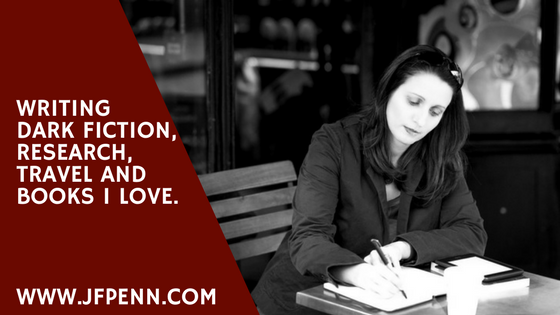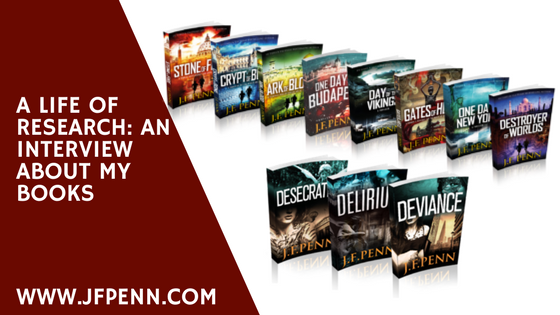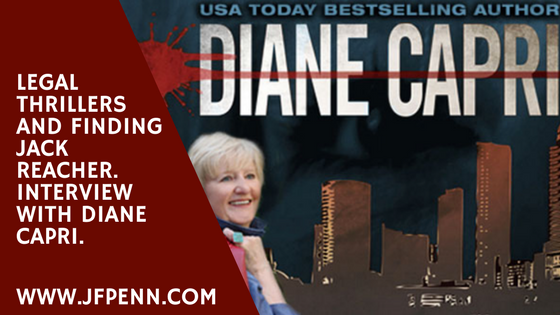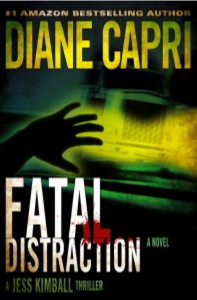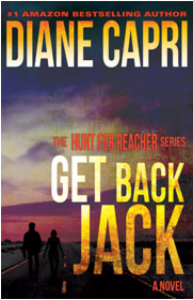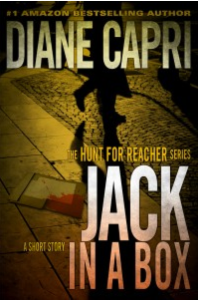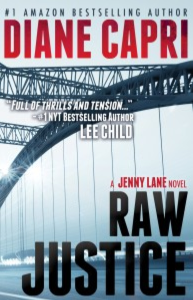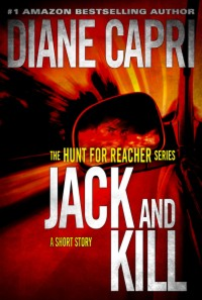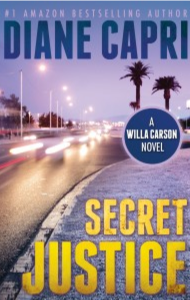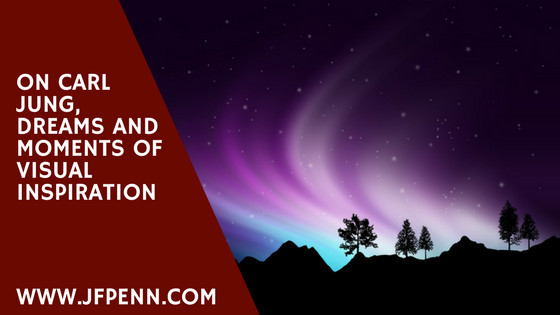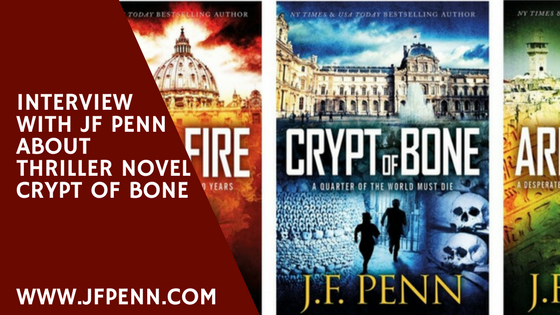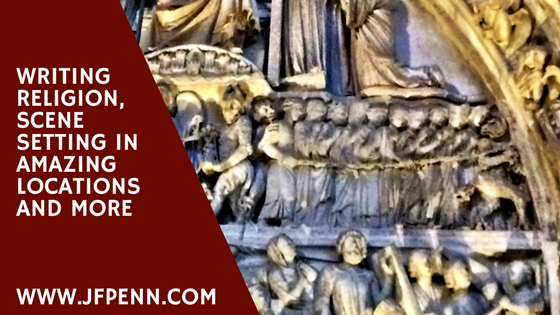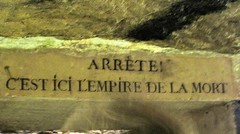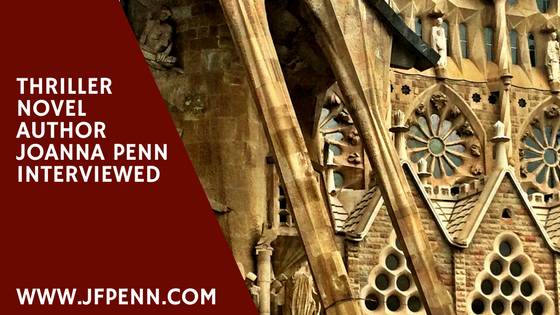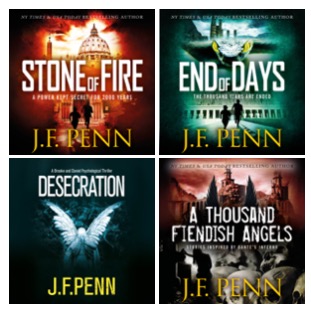This interview transcript is from the Scenes and Sequels Podcast with Dave Kearney, recorded in May 2014. We talk about my research process, obsession with travel and what inspires my stories, as well as discussing my darker side! I also read an excerpt from the Prologue of Desecration which you can listen to below.
Dave: Welcome to the Scenes and Sequels podcast for readers and writers of genre fiction. I’m your host, Dave Kearney, and on today’s show, I chat with New York Times and USA Today bestselling author, J.F. Penn about her new book, “Desecration,” the first in her new London Mystery series.
Dave: Hi, all, it’s Episode Seven of the Scenes podcast, and that was the opening passages from “Desecration,” read by the author, and my guest on today’s show, J.F. Penn. Now, it’s just brilliant to be able to chat with Joanna today, because she shares some just amazing insights into her writing process, and in particular, we talk a bit about theme and just the level of research that Joanna does when she’s writing her stories. And I really think it shows in a story like “Desecration,” because as a reader, it really sort of forces you to ask the question of where fact ends and fiction begins, and that’s really cool, because it gives that story a level of believability, which I think is really important.
And, with that in mind, we also talk a little bit about Joanna’s views on challenging readers. And Joanna believes that writers have the responsibility to tackle difficult themes and to examine difficult issues from a character’s perspective, and by doing so, it challenges readers to be thinking about the story long after they’ve finished reading it. And I think that’s really cool as well. Perhaps it doesn’t hold true for every story; it’s definitely something to think about, because, certainly from my perspective, after reading “Desecration,” it definitely had me thinking for some time afterwards, certainly about some of the themes underpinning the story, and that definitely comes through in our conversation today.
Just quickly, one other thing that we chat about today is some of the challenges for writers in switching between genres, and anyone who’s familiar with Joanna’s work would know that she also writes the ARKANE thriller series, and so we chat a little bit about the different approach that she’s taken to writing her ARKANE thrillers, and the London Mystery stories.
